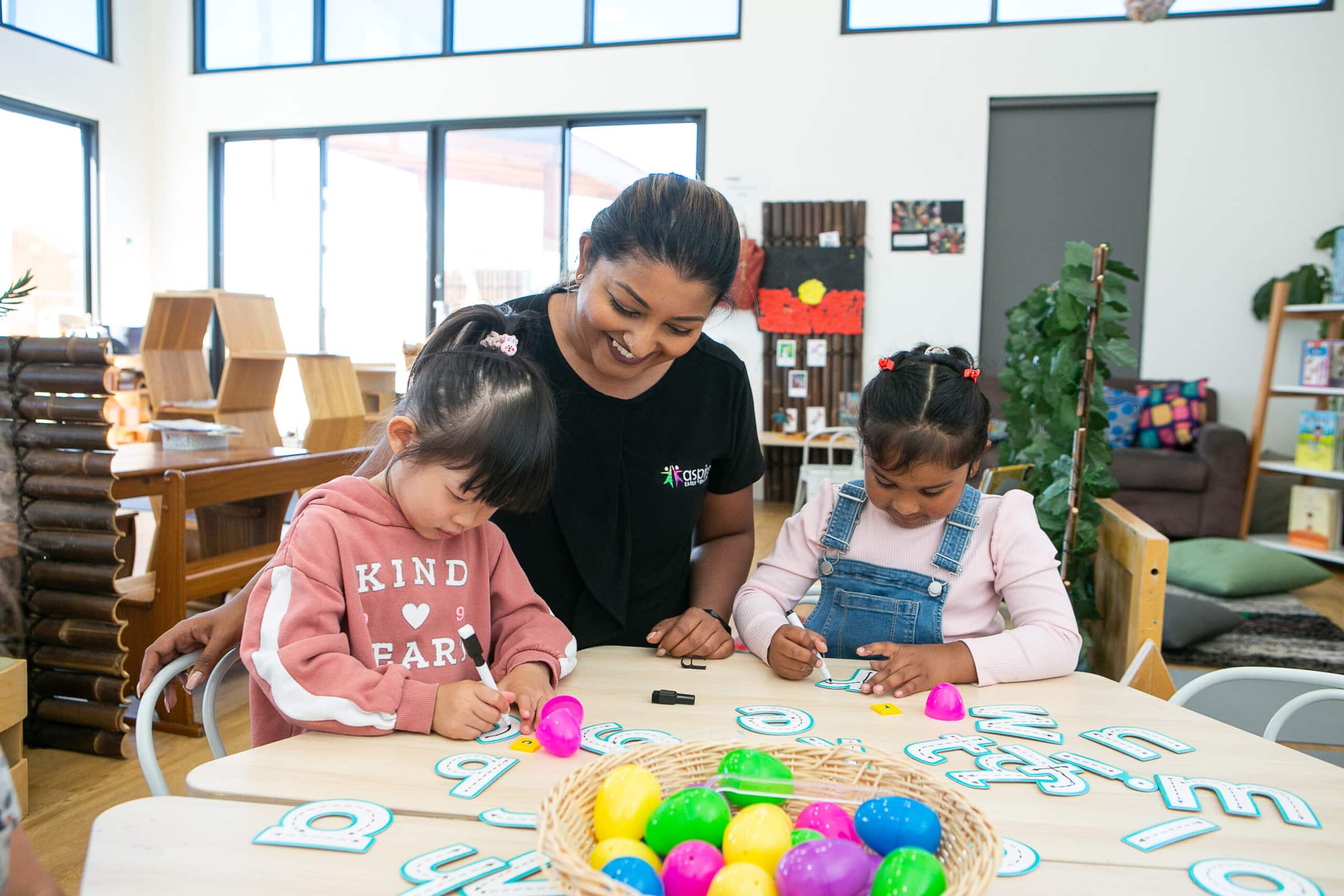The Benefits of Early Education and Kindergarten


At Aspire Early Education, we facilitate individual, early childhood journeys for each one of our students, and believe that quality early education can have significant positive impacts on a child’s life.
In fact, research from the Australian Early Development Census shows that early childhood education is one of the best ways to help your child develop the social, emotional, and cognitive skills they need to prepare for their transition to primary school.
Here are five ways early childhood education can impact positively on your child.
A review by the Australian Institute of Health and Welfare reported that preschool settings promote cognitive and social development benefits. Our learning environments at Aspire allow for play-based learning, which encourages children to explore, experiment and learn through play. This approach facilities better cognitive skills, including language, memory and problem-solving.
We also offer various partner programs at our centres, such as Science Power and our ELLA Language program, which also help children develop their language skills and critical thinking.
Childcare can help develop a child’s emotional resilience, through a safe and supportive environment where they can express their emotions and build relationships. In fact, a study published in the Journal of Pediatrics found that children who experienced higher quality relationships and activities in childcare were more attentive and better able to their regulate emotions as they started school.
At Aspire, our children learn in different ways through stories, songs, dance and play-based learning, which gives children an understanding of emotions such as happiness, sadness and anger. These activities, along with developing supportive relationships with their peers and educators, help to build their emotional resilience.
In childcare, children are encouraged to play and interact with others. Through these social interactions, they learn to develop different characteristics, such as greater empathy, teamwork, and confidence. By spending time with their peers, children learn to listen to others and understand each other’s feelings, leading to positive social outcomes.
Long day care also offers the opportunity for children to interact and connect with our educators, which helps them build positive social relationships with other adults. These connections are not only beneficial for their social and emotional development but also their learning outcomes.
For most children, going to childcare is the first significant amount of time they spend away from their home and family. While at first this may not be an easy transition, it can greatly help children develop their confidence and independence through being exposed to new tasks and opportunities. This might include learning to feed themselves, going to the toilet, putting away equipment properly, or learning to tie their shoes.
Through these self-discovery activities and experiences, children will learn to become more independent and build a greater sense of self identity. These are valuable skills for children at a young age, as well as those transitioning into school.
The transition to school is a big step for children, so that’s why at Aspire, we want to make this transition as smooth as possible. Frequently attending long day care offers children a routine and structure that is similar to what they’ll experience in primary school, allowing a smoother transition into their schooling years.
There is also growing evidence that quality early childhood education gives children developmental opportunities and improves school readiness. Our 'Step into Prep Program' is designed to support the development of your child’s social and emotional intelligence in a safe and secure environment. We offer children opportunities to develop their fine motor skills, have the confidence to ask for help, and use their problem-solving skills to find their belongings.
We also work collaboratively with families and local primary schools so that everyone has the best knowledge to ensure their child is ready for the transition into prep.